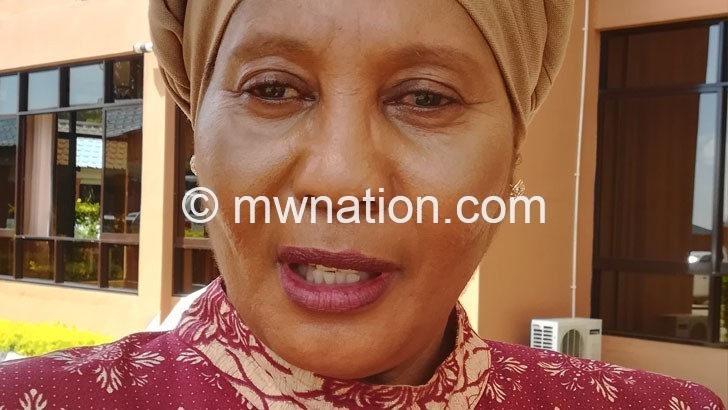Ministry takes swipe at councils
Ministry of Local Government has attributed slow pace of development and abuse of resources in local councils to weak leadership.
Deputy Minister Halima Daudi said this on Monday in Salima when she presided over the opening of the leadership and management training for local council leaders.

She said it was unfortunate that the financial abuses were happening despite that there is political and administrative oversight in the management of resources.
Daudi said: “We have also learnt that some district councils did not manage resources well to the extent that the opinion of external auditors on their financial statements was adverse or disclaimer.
“This means that finances disbursed to those councils were not properly used. Why should a council that has both the political and administrative leaders perform such poorly?”
She said her ministry will not sit and watch the shortfalls unfold and demanded action at council, Local Government Service Commission, National Local Government Finance Committee and principal secretary level.
The deputy minister also took aim at some district commissioners (DCs), who have seen their respective communities demanding their transfers over allegations of maladministration.
Daudi said: “It has been noted that there is lack of assertiveness by some DCs whereby you are failing to demonstrate strong leadership in your decision-making.
“This is one of the causes for frequent requests for transfers of DCs by stakeholders. In view of devolution aspects, all officials are subject to disciplinary measures within their area of work.”
She said officers should be disciplined where a wrong has taken place as opposed to transferring them.
Her remarks come at a time most local councils are embroiled in allegations of financial mismanagement leading to poor implementation of projects.
The most recent prominent case is the alleged abuse of the K6.2 billion government funds meant for the fight against Covid-19 which led to the suspension of some DCs and city council chief executive officers.
An audit into the finances carried out by the Office of Auditor General last year found that some council officials were pocketing irregular allowances while also channelling funds to activities unrelated to the pandemic interventions.
Some DCs have also been at loggerheads with parliamentarians and councillors, a case in point being that of Rumphi where the DC Fred Movete was involved in a social media spat with Rumphi West legislator Yona Mkandawire over allegations of project funds misappropriation.
Council secretariats have also been at loggerheads with some parliamentarians and ward councillors.
Governance expert Eddy Kalonga has said the wrangles are a result of control over Local Development Fund and Constituency Development Fund.
He said: “The conflict is not new. Unfortunately, it is the rural masses that suffer. The best way to end this conflict is to make sure there is a code of conduct that should spell out the limits of the councillors and parliamentarians who, most times, interfere in the roles of the DCs and cause most of these wrangles.”
The 2015 Tilitonse Fund Report indicated that funding to local councils progressively increased from K3 billion in 2005/06 financial year to K34.2 billion in the 2015/16 financial year courtesy of decentralisation.
The report titled ‘Political Economy Analysis of Accountability Government Councils’, followed a research conducted by Asiyatu Chiweza, a professor in the Department of Political and Administrative Studies at the University of Malawi.
The study found that despite media reports suggesting serious accountability challenges and the prevalence of corruption in local government councils “the nature and extent of the problem is not fully known” largely due to limited production of financial reports and attention to audit reports as well as abuse of locally generated revenues and politicised intra-district allocation of development resources.





